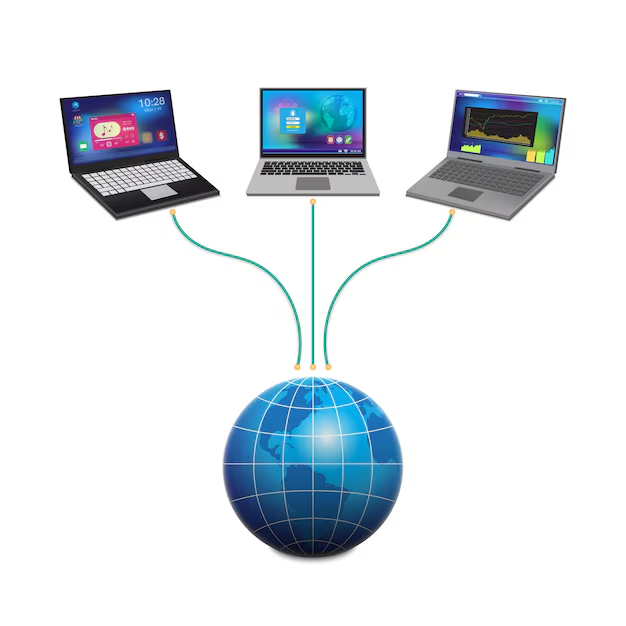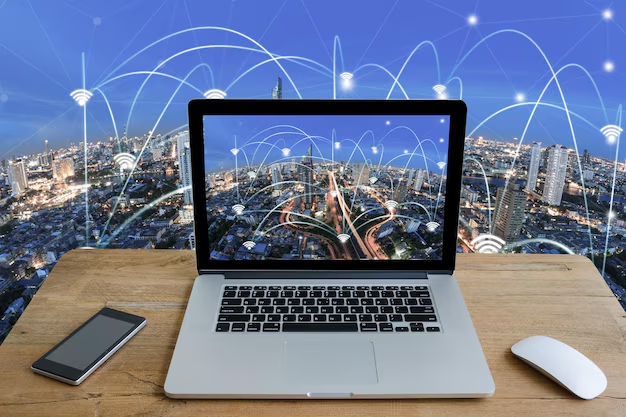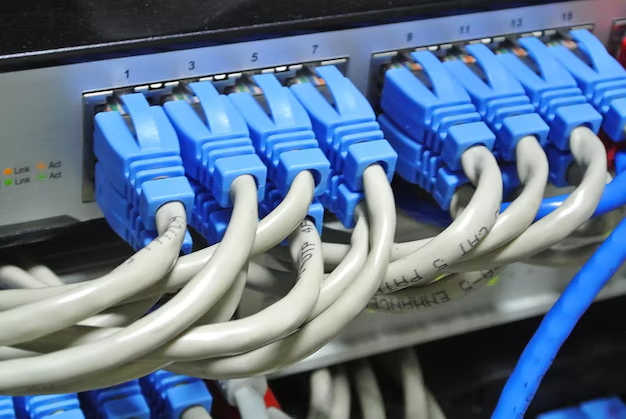The networks can be very essential in the constantly changing digital communication environment as they make data transmission smooth and safe. The IP2 network is one such network that is creating ripples in the IP-based technologies world. This paper will discuss the IP2 network concept, its functionality, uses and why it is becoming very relevant in the present-day digital age. Obviously, whether you are a technological enthusiast or simply a person who wants to learn about the newest technologies related to the networking aspects, this article will offer you everything that you will need to know about IP2 networks.
What Is the IP2 Network?

IP2 network is a peer to peer (P2P) or decentralized network which is based on IP protocols to help connect the devices and enable people to transmit data in a secure manner. The IP2 network does not utilize centralized servers like the traditional server client models. Rather it links many nodes (or devices) together so peers can transfer data. This renders it to be a scalable and resilient network that may support various applications, including the decentralized file sharing and secure communications.
IP2 network can frequently be used to describe networks that utilize IP2P (IP-to-Peer) technology, i.e. where the data are not sent through central switching points but rather directly between the devices. VPNs (Virtual Private Networks), decentralized applications (dApps), and blockchain technologies are some common areas of application of this type of communication.
How Does the IP2 Network Work?
The IP2 network is based on the establishing direct connections between devices (so-called peers) based on internet protocol (IP) addresses. The following is a breakdown of its functioning:
Peer-to-peer (P2P) Communication.
The IP2 network is based on peer to peer communication wherein devices communicate directly. As opposed to having a central server, every network device has the ability to both send and receive data and is a client as well as a server.
Data transmission Data transmission involves direct connection of the sending gadget and the peer gadget through their IP address making data transmission secure and efficient.
• Decentralization: Since data is not dispatched to a central server but peer-to-peer, no single point of failure is present and thus the network would be more resilient and not prone to attacks.
IP Addressing and Routing
Devices in IP2 network are identified with unique IP addresses. These IP addresses are applied to send the data to the appropriate recipient, which means that the data is sent to the proper peer on the internet. In contrast to the traditional models of client-server in which the servers are intermediaries, the IP2 network is direct, where the communication is according to the addressing system of the Internet Protocol.

Security and Encryption
Any network is more concerned with security and the IP2 network is best when it comes to offering secure data transfers. End-to-end encryption is used by many IP2 networks i.e. only the sender and receiver can decode the data. This makes sure that sensitive information is not intercepted when being transmitted.
Applications of the IP2 Network
IP2 network has found its way in applications in different industries and each of them has gained so much through its decentralized character and safe communication. The applications used commonly include:
Virtual Private Networks (VPNs)
One of the most frequently used IP2 network applications is VPN. VPN services apply the IP2P technology in establishing secure connections between its users and the internet, and safeguard privacy of online users by encrypting their internet traffic and concealing their IP addresses. This is particularly significant to those who want to skip geographic limitations or may want to use public Wi-Fi without apprehension or to be anonymous during browsing.
Decentralized Applications (dApps).
Another use of the IP2 network is in decentralized applications (dApps). The applications utilize blockchain technology to make sure that the data is stored and processed on a network of devices instead of a centralized server. With IP2 network, dApps will be able to work effectively and safely and enable users to engage in transactions and data exchange without the assistance of a centralized authority.
Peer-to-Peer File Sharing
The IP2 networks are commonly used by file-sharing sites in distributing files in an insecure and decentralized manner. Other common applications such as BitTorrent, which is based on the IP2P network model, enable users to access files with each other directly. This P2P system allows less strain on the servers and guarantees faster and reliable file transfers.
Blockchain Networks
The cryptocurrencies Bitcoin and Ethereum rely on blockchain technology, which in turn relies on the IP2 networks to provide a secure and decentralized communication between nodes. The network confirms and documents blockchain transactions without the involvement of centralized sources, making the transactions transparent and secure.
Advantages of the IP2 Network
The IP2 network has some benefits as compared to the traditional model of client server. Among the main positive aspects, one can note:
Increased Security
The main advantage of the IP2 network is the improved security that is provided by it. Since information is relayed between fellow peers as opposed to through a centralized server, it is less susceptible to attacks. Furthermore, the encrypted data is confidential and, therefore, encryption is the best solution when it comes to programs that would need safe communications.
Scalability and Flexibility.
IP2 networks are decentralized and hence can be scaled without difficulty. The capacity of the network is increased relative to the number of devices (or nodes) in the network and this means that the network can be used to support more data and users without necessarily having to reduce its capacity.
Reliability
The IP2 network is more resilient since it does not have a central server with the capacity to fail. In case one peer fails, the data may be redirected in other available peers. Such redundancy enhances the reliability of the network.
Challenges and Limitations of the IP2 Network
Although the IP2 network has numerous benefits, it also has a few challenges that should be overcome:
Latency Issues
In other instances, IP2 network may experience the problem of latency particularly when the peers are separated by long distances. This may lead to slowness in data transfers and slow communications.
Complexity of Setup
A peer-to-peer network can also be harder to configure than a traditional client-server design. This entails technical skills especially when it comes to routing, firewalls and security provision among numerous peers.
Possibility of Bad faith.
Although IP2 networks are supposed to be safe in communication, they are prone to attacks by bad website developers. As an example, a decentralized network may be more difficult to defend against DDoS attacks since the network does not have a central server to defend.

FAQs About IP2 Networks
1. What is the benefit of IP2 network as far as security is concerned?
Data encryption made by IP2 network and no more centralized servers helps to make it more secure in case data are stolen or attacked, and one server is exposed as the point of failure. The end-to-end encryption is a system that transmits the information via a medium so that only the sender and receiver can decrypt it.
2. Does IP2 network support all forms of communication?
Although the IP2 network has many advantages, it is most applicable to those applications that demand decentralization and security like VPNs, dApps, and blockchain networks. It is not the most suitable in all forms of communication especially those where it is important to have low latency and high-speed data delivery.
3. Can I create my own IP2 network?
Yes, it is possible to make your own IP2 network but it will need technical expertise. You would have to configure peers, routing and provide security solutions such as encryption. The IP2 networks can be created and managed using many open-source tools.
4. What are the benefits of IP2P as compared to the conventional client-server networks?
IP2P networks come with a number of benefits such as greater security, reliability, scalability and less cost. The network does not require a centralized server; therefore, it is less susceptible to an attack and data transmission occurs more efficiently between peers.
Conclusion:
The IP2 network represents a significant evolution in the way digital data is transferred and processed. Its decentralized, peer-to-peer model brings numerous benefits, including enhanced security, scalability, and reliability. As technology continues to advance, the IP2 network is poised to play an even larger role in a variety of applications, from secure communications to blockchain networks. By understanding how this network works and its potential applications, businesses and individuals can leverage its power to enhance their digital communication and operations.





